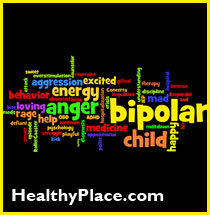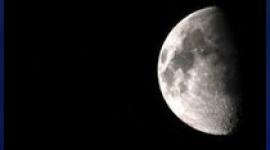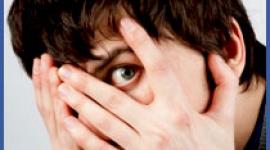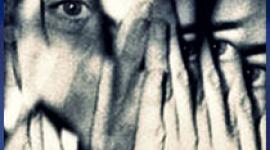Age of Onset and Gender Issues in Bipolar Disorder
How early in childhood can the first bipolar symptoms appear? And the impact of bipolar disorder on girls and women.
 It is being increasingly recognized that bipolar disorder often has its onset in adolescence or early adulthood. First affective symptoms appear in early teenage, and even in preadolescence. There is a growing interest, with little consensus, in the affective and behavioral symptomatology in childhood and adolescence preceding the first onset of a clearly diagnosable bipolar disorder. There is a significant time-lag between the onset of the illness and first treatment. This may put patients at risk of increased morbidity, including effects on personality, school, work and social functioning. There is growing evidence in the schizophrenia literature that this time-lag may predict a poorer response to treatment. Although there is no clear evidence of this in bipolar disorder, this issue should be borne in mind.
It is being increasingly recognized that bipolar disorder often has its onset in adolescence or early adulthood. First affective symptoms appear in early teenage, and even in preadolescence. There is a growing interest, with little consensus, in the affective and behavioral symptomatology in childhood and adolescence preceding the first onset of a clearly diagnosable bipolar disorder. There is a significant time-lag between the onset of the illness and first treatment. This may put patients at risk of increased morbidity, including effects on personality, school, work and social functioning. There is growing evidence in the schizophrenia literature that this time-lag may predict a poorer response to treatment. Although there is no clear evidence of this in bipolar disorder, this issue should be borne in mind.
Early onset is often defined as occurring before the age of 25. The younger the age of onset of bipolar disorder, the more likely it is to find a significant family history of the condition. Early onset bipolar disorder most commonly begins with depression and there may be many episodes of depression before the first hypomania. Depression with psychotic features may be a predictor of future full-blown bipolar disorder in the early onset group. Akiskal (1995) has argued that syndromal dysthymia with its onset in childhood, particularly in the presence of a family history of bipolar disorder, may herald a bipolar disorder. Rapid cycling, mixed states, and psychotic features are more common in early onset conditions. The presence of early onset substance abuse should raise one's suspicions about bipolar disorder. Early onset bipolar disorder is more commonly associated with response to Divalproex and a relative failure of response to Lithium not only because rapid cycling, mixed states and substance use are common in this group but also because adolescents and young adults are less tolerant to the side effects of Lithium.
Gender Issues Associated with Bipolar Disorder
Female gender is more commonly associated with rapid cycling bipolar disorder (Calabrese et al, 1995), with or without thyroid dysfunction, perimenopausal exacerbation of the condition, the risk of exacerbation post-partum and being diagnosed as borderline personality disorder (especially in adolescents or young adults) when, in fact, some of these presentations could be explained by rapid cycling bipolar disorder. Biphasic mood dysregulation is being increasingly recognized as being more common in subjects with borderline personality functioning and there is merit in treating clearly established biphasic mood dysregulation even in the presence of personality dysfunction. Postpartum psychotic and serious mood disorders may well be part of a bipolar spectrum. There is also growing evidence that the pharmocokinetics of many psychotropic medications, including mood stabilizers, is altered in pregnancy, post-partum and even around menstruation. Bipolar disorder secondary to underlying medical or neurological conditions are associated with the condition in the elderly (Evans et al, 1995).
About the author: Vivek Kusumakar, MD, FRCPC is an Associate Professor, Head of the Division of Child & Adolescent Psychiatry, and Director, Mood Disorders Group, Dept of Psychiatry, Dalhousie University, Halifax, Nova Scotia.
next: Bipolar Disorder in Children and Adolescents: Medications, ECT
~ bipolar disorder library
~ all bipolar disorder articles
Sources
Akiskal HS. Developmental Pathways to Bipolarity: Are Juvenile-Onset Depressions PreBipolar? J Am Acad Child Adolesc Psychiatry. 1995. 34:6. 754-763
Calabrese JR, Woyshville MJ. A Medication Algorithm for Treatment of Bipolar Rapid Cycling? J Clin Psychiatry. 1995. 56 (Suppl 3) 11-18
Egeland JA, Hostetter AM. Amish Study 1: Affective Disorders among the Amish, 1976-1980. Am J Psychiatry. 1983. 140(1): 56-61.
Evans DL, Byerly MJ, Greer RA. Secondary Mania: Diagnosis and Treatment. J Clin Psychiatry. 1995. 56 (Suppl 3): 31-37.
Strober M, Carlson C. Bipolar Illness in Adolescents with Major Depression. Clinical, Genetic and Psychopharmacologic Predictors in a Three to Four Year Prospective Follow-Up Investigation. Arch Gen Psychiatry. 1982. 39: 549-555.
next: Bipolar Disorder in Children and Adolescents: Medications, ECT
~ bipolar disorder library
~ all bipolar disorder articles
APA Reference
Staff, H.
(2008, October 25). Age of Onset and Gender Issues in Bipolar Disorder, HealthyPlace. Retrieved
on 2026, February 25 from https://www.healthyplace.com/bipolar-disorder/articles/age-of-onset-and-gender-issues-in-bipolar-disorder



